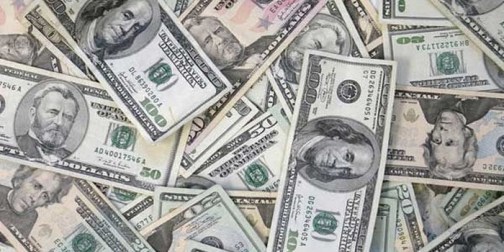By Anthony Areh
Economic Experts said that though Federal Government’s decision to ban forex for food importation would develop local capacity but should be executed cautiously to forestall drastic food shortage.
The experts gave this suggestion on Sunday in Abuja while commenting on
President Muhammadu Buhari’s directive to the Central Bank of Nigeria (CBN) not to implement any plan geared toward providing forex for the importation of “food items and fertilisers”.
According some of the experts, it is a welcomed development but should be executed systematically and cautiously.
Dr Chijioke Ekechukwu, an Economist, while lauding the president’s directive said that if food item importation was banned, there would be growth in local food capacity and its attendant gains.
“However, the decision to end such importation must be executed systematically and gradually, to forestall drastic food shortage, which could cause high inflation in food sector arising from shortages and increase in hunger.
“Nigeria still imports up to 60 per cent of palm oil to fill local supply shortfalls. This applies to many other food products. Therefore, it has to be done cautiously,” he advised
The ban on importation of rice, Nigeria gradually became self-sufficient in rice production and indeed, the entire rice value chain.
He said that the country saved a lot of foreign currency and many jobs were equally created in the sector.
Mr Olawale Rasheed, Director, Policy Advocacy Centre (PAC), Abuja Chamber of Commerce and Industry (ACCI), described the ban allocation of forex for some food items as a step in the right direction.
“The bitter reality we are facing as a nation is that the government is cash-strapped due to multiple complications arising from COVID-19, oil market setback and others,” he said.
Rasheed, however, urged the government to prioritise application of the earnings accruing to the nation, especially in the forex sector.
He further advised the government to strengthen local production by supporting local Micro, Small and Medium Enterprises (MSMEs), hence the N70 billion MSMEs support fund was commendable.
He also called on the Federal Government to deepen engagement with business associations to ensure that supportive policies were put in place to minimise any negative effects of the forex ban.
Dr Ken Ukaoha, a Trade and Economic Law Advocate, commended the President for his consistency in design of export orientation, aimed at closing door to latent importation and dependence.
He said it would boost self-sufficiency and added value to Nigerian products.
Ukaoha, however, urged the government to also look at the quantity of what Nigeria has because presently majority of farmers in the north-east were internally displayed due to insurgency.
“In the North-West presently, we have dreaded banditry and kidnapping.
“In the North Central we also have a situation where crises between farmers and herders had discouraged and displaced many farmers.
“Major agricultural commodities produced in Nigeria are from the north, so if we have problems there, in addition to the climate change issues, which have resulted to massive flooding and deforestation, where do we stand?
“I agree with the policy but let the Ministry of Agriculture and Rural Development focus on the quantity of commodities available, what we need to produce more, how sustainable are they and how capable are we?
“These are some of the analysis I will like the ministry to embark on and bring forward before the conclusion of this well-intended directive to save Nigeria from further embarrassment,” Ukaoha said.




